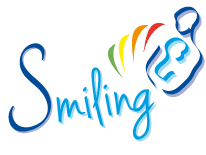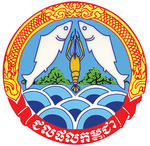This project is coordinated by IRD, Institut de Recherche pour le Developpement
NUTRIPASS "Prevention of malnutrition and associated pathologies" department
UMR Nutripass
BP 64501
911, avenue Agropolis
34394 Montpellier Cedex
FRANCE
Jacques BERGER , Coordinator
Gentiane BLANCHARD , Manager
Tel : + 33 (0)4 67 41 63 67
Fax: + 33 (0)4 67 41 61 57
Ministry of Agriculture, Forestry and Fisheries of Cambodia / Department of Fisheries Post-Harvest Technologies and Quality Control
The Department of Fisheries Post-Harvest Technologies and Quality Control - DFPTQ
DFPTQ is a governmental body under the Fisheries Administration, the Ministry of Agriculture, Forestry and Fisheries, Cambodia.
The mission of DFPTQ is to provide the legislative infrastructure and quality assurance system; and to conduct scientific research and extension providing information, instruction and training needed to improve the performance of post-harvest fisheries in contributing to the achievement of national development objectives, especially those related to poverty reduction, enhancing food and nutrition security and sustainable development and equitable use of the fisheries resource base.
The mains objectives of the Division of Food Safety and Nutrition under the DFPTQ are to conduct researches,provide trainings and extension services in the fields of food and nutrition security, socio-economy, and livelihoods by improved utilisation of fisheries resources with sustainable and economic ways.
The division has the expertise and experienced staff in the field of food and nutrition security with high capacity performance and strong commitments to the project. The department is currently co-leader of the DANIDA funded WinFood project, aimed at improving complementary foods for young children using locally available food items.
Main tasks in the project
The DFPTQ will be co-leader of WP2 (data and intervention mapping) and will contribute to all other WPs,especially to WP3 (food composition tables), WP4 (linear programming) WP7 (integration in policy) and WP8 (dissemination)
"SMILING for Action", Final dissemination event, 3rd April, Phnom-Penh, Cambodia
The final dissemination event will be organized Thursday 3rd of April 2014, at Sofitel Phnom-Penh, Cambodia. The five national roadmaps of priority interventions to prevent micronutrient deficiencies during the project will be presented to a large audience of stakeholders, policymakers, representatives of International organizations involved in nutrition policies implementation.
Publication on the project in "Food and Nutrition Bulletin"
The SMILING project was the topic of a publication in Food and Nutrition Bulletin , vol. 34, no. 2 (sup.), "The SMILING project: A North–South–South collaborative action to prevent micronutrient deficiencies in women and young children in Southeast Asia" Berger J. et al
SMILING outcomes at the Micronutrient Forum Conference
Two presentations at the Micronutrient Forum Global Conference (Addis Ababa, Ethiopia, June 2014) will be about specically SMILING. Many researchers from the project will present outcomes related to the project.











